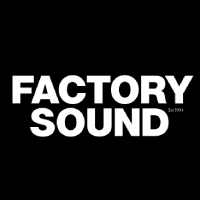1960 - 1969

The 1960s began with a bang for Easts in a positive following the disappointments of the decade prior.
But after great promise, results began to waver, culminating in the Club's worst season in history in 1966, losing all eighteen matches and finishing with their third wooden spoon in four seasons.
There was light at the end of the tunnel, however, as a young Jack Gibson took the coaching reins in the latter part of the decade, which also saw the Club officially adopt the Rooster as its logo. The rest, they say, is history.
1960 - A Thrilling Journey
| Played: | 23 |
| Won: | 14 |
| Lost: | 9 |
| Drawn: | 0 |
| Final Position: | Runners Up |
For the past six seasons, Eastern Suburbs had failed to gain momentum and made the top four, but in 1960 it all came together and clicked.
Dick Dunn was appointed as coach - and appropriately led the side to the Club's first decider since the 1945 final which he famously starred in the 22-18 victory.
Props Jack Gibson and Terry Fearnley shared the captaincy duties, appropriately leading from the front, with Gibson taking charge after his partner succumbed to a season-ending injury late in the year.
Easts defeated every single opponent at least once during the season - including the great St George side coming off their fourth consecutive Premiership - in a famous 7-4 triumph at the Sydney Sports Ground.
The Tricolours navigated their way through to the Grand Final via a playoff system after finishing on 22 competition points alongside Wests, Balmain and Canterbury-Bankstown.

Easts disposed of Canterbury in the first leg of finals 20-11, and despite losing to Wests, the Red, White and Blue got over the top of the 'Berries' in a 100-minute thriller, before going on to rise from the ashes and defeat the Magpies 20-15 in what was described as a tense struggle.
While there were plenty of cheers from the Easts faithful on the hills and through the suburbs, celebrations were temporarily subsided with the news of the death of Harry 'Jersey' Flegg - the Club's first capped player, first captain and co-founder.
Unfortunately for Dick Dunn's men, the blood, sweat and tears shed through the arduous finals series left them both physically and mentally drained. The side fought gallantly in the first half hour, trailing just 5-2, but honourably fell short 31-6.
In the end though, it was a memorable season for the Club - which saw more gate money earned than any other club (8672 pounds and 10 shillings) as well as a trip to Perth to represent the NSWRL.
Debutants: Gordon Clifford, Billy Groves, Les Hampson, Brian Wright, Bob Keyes, John Andrew, Doug Ricketson, Boyce Beeton, Peter Gallagher, Don Hardy, Neil Ryan

1961 - A Solid Campaign
| Played: | 18 |
| Won: | 9 |
| Lost: | 8 |
| Drawn: | 1 |
| Final Position: | Fifth |
Although Eastern Suburbs failed to reach a second consecutive Grand Final, the side enjoyed a solid season with five wins in the first round and four wins in the second to propel them to a semi-final playoff.
While a win against third-placed Canterbury would guarantee a three-way playoff for fourth place, but unfortunately at the Sydney Sports Ground, everything could have gone wrong did, leading to a 5-all draw that ended the season then and there.
At the start of the season, Dick Dunn had stood down as coach in order to concentrate on his full-time profession in the furniture trade as well as family commitments and coaching commitments to Sydney and NSW. But with some convincing from captain-coach Terry Fearnley, Dunn returned to take the reins once more.

But the highlight of season 1961 came in the form of the opening of the Eastern Suburbs Leagues Club, the official home of the Tricolours - making an immediate impact on the community.
Legendary winger Brian Bevan also made a return to the Club in September, taking part in the Keith Holman Testimonial Sevens at the Sports Ground, with the 37 year-old scoring five tries in three matches.
Debutants: Tony Favell, Warren Crotty, Ron Hanson, Don Fenton, Bob Kennedy, Gavin Crofton, Ken Wells, Brian Devine
1962 - Another Luckless Miss
| Played: | 18 |
| Won: | 9 |
| Lost: | 8 |
| Drawn: | 1 |
| Final Position: | Fifth |
The arrival of front rower Neville Charlton from Western Suburbs saw the departure of Jack Gibson but despite this, 1962 proved to be a mirror image of 1961, another miss to the playoffs.
Once again with Dunn as Head Coach and Fearnley as skipper, Eastern Suburbs started the year in abysmal style, winning just two games in the first ten rounds - but a miraculous turnaround which saw them take out seven of eight matches, including another win against St George - saw them just one point behind fourth-placed Parramatta.
But the most upsetting news of the season came when exciting fullback John 'Straw' Andrew broke multiple discs in his neck, ending his Easts career in a horrific tackle against Newtown.

Dunn paid tribute to Andrew:
"God he was a good football, Straw. He was a great team man and he could really run the ball. Bloody lovely."
Debutants: Neville Charlton, Merv Cross, Terry Gallagher, Gary Williams, Tony Stavrianos, Bill Russell, John Bissett, Geoff Waldie
1963 - In the Waste Land
| Played: | 18 |
| Won: | 3 |
| Lost: | 15 |
| Drawn: | 0 |
| Final Position: | Tenth (Wooden Spoon) |
In four successive seasons from 1963-1966, Eastern Suburbs won just two games in April, signalling the Club's most dire period in history. Worse still, it marked a period that garnered just eight wins from 72 matches and three wooden spoons.
Season 1963, notably plagued by atrocious weather conditions according to the Club's annual report, saw the Tricolours win just three of eighteen matches, finish last and claim the wooden spoon for the first time since 1948.
Despite a number of experienced and reliable campaigners returning for another season in Red, White and Blue - as well as future legends in Ron Saddler and Cliff Boyd - Easts were unable to make a dent on the Premiership in any shape or form.
In an off-field highlight, however, legendary point scorer Dave Brown was astutely made a Life Member of the Club, while skipper Terry Fearnley called time on his career after 176 matches in all grades for Easts.

Debutants: Ray McDermott, Ron Saddler, Fred Strutt, Cliff Boyd, Ian Bugden, Bill Brown, Terry Matthews, Barry Robinson, Ken Stonestreet, Kevin Ashley, Greg Davies, Mick Ogg, Kevin Robinson
1964 - Treading Water
| Played: | 18 |
| Won: | 2 |
| Lost: | 16 |
| Drawn: | 0 |
| Final Position: | Ninth |
Despite the side claiming just two wins from eighteen in 1964 (26-2 vs Canterbury and 10-7 vs Manly), Easts narrowly avoided the wooden spoon.
While the side was toiling away in the doldrums, there was a ray of hope for the future as youngsters Ron Saddler, Kevin Junee and Kevin Ashley were duly rewarded with representative selection.
Winger Paul Cross was rated one of the finds of the season, scoring with his first touch of the ball in the final round of the season - and appropriately his son Ryan would do the same with a double three decades later.
Debutants: Peter Dickenson, Kevin Junee, Dan McCaig, Jim Matthews, Jeff Skene, Frank Drake, Nat Silcock, Ken McMullen, Ross Byrne, Gwyl Barnes, Kevin Conroy, Ken Flanagan, Paul Cross, Col Scott
1965 - Back to the Brink
| Played: | 18 |
| Won: | 3 |
| Lost: | 14 |
| Drawn: | 1 |
| Final Position: | Tenth (Wooden Spoon) |
A new coach in Bert Holcroft and Club President in Dick Dunn couldn't propel the men from Bondi to a playoff berth, with another wooden spoon in tow after three wins, fourteen losses and a draw.
The year could arguably have been over before it started after captain, goalkicker and rising star Ron Saddler suffered a season-ending injury in the third round of the pre-season competition.
While highlights were few and far between, there were some notable exceptions for the Easts' faithful to celebrate:
- Halfback Kevin Junee became the first NSW representative from the Club since Terry Fearnley in 1960, and went on to win the JJ Brown Trophy as Eastern Suburbs' Best and Fairest player.
- Easts beat Manly 17-7 for the first time at Brookvale Oval since 1948.
Newly-appointed captain Peter Gallagher and returning veteran Bob Landers made their 100th appearance for the Tricolours. - Long-serving hooker Ken Ashcroft entered the elite class of Easts players to have featured in 150 games for the Club.
Debutants: Bob Hensby, Ian Stewart, John Geraghty, Jim Vaughan, Mike Phillips

1966 - Rock Bottom
| Played: | 18 |
| Won: | 0 |
| Lost: | 18 |
| Drawn: | 0 |
| Final Position: | Tenth (Wooden Spoon) |
Just when everyone thought it couldn't get worse, it did.
Season 1966 is acknowledged as Eastern Suburbs District Rugby League Football Club's worst-ever season, with eighteen Premiership games for eighteen losses, as well as four pre-season games for four losses.
Secretary Jim Hunt was blunt in his summary for the year's annual report:
"It is painful to record. This has never happened before in your club's illustrious history and it must never happen again."
But much like the years previous, there were bright spots on the horizon - two of the Club's future champions in Barry 'Bunny' Reilly and John Peard made their first-grade debuts in 1966.
The biggest news of 1966 came as former captain and forward Jack Gibson had been elected as coach for the 1967 season, with Hunt foretelling: "Surely the club is due for a turn of fortune at the beginning of the 1967 season."
On the 20th of December, 1966 at 6pm, it was decided that the Eastern Suburbs District Rugby League Football Club would adopt the Rooster as its official emblem according to the Minutes of Board Meetings of Eastern Suburbs Leagues Club.
After general discussion re an emplem (sic) for the Club it was moved by Mr. C. Steel and seconded by Mr. L. Hedger that the Rooster, as worn by the French Rugby League Team be adopted by the Eastern Suburbs' Leagues' Club for its official emblem. This was Carried Unanimously.
Debutants: Gary Banning, Tom Higham, Graham Mayhew, Gil Morgan, Ron Pheeney, Ron Gallagher, Les Hayes, John Peard, Ron Snell, Sam Crotty, Barry 'Bunny' Reilly
1967 - Here Come the Roosters
| Played: | 23 |
| Won: | 13 |
| Lost: | 8 |
| Drawn: | 2 |
| Final Position: | Semi-Finalists |
Jack Gibson - the man who led the Club to the 1960 decider - takes the reins as Head Coach, making an immediate impact on the Red, White and Blue.
It was also a revolutionary season for the NSWRFL, which expanded for the first time in two decades with the introduction of Cronulla-Sutherland and Penrith to the competition as well as the introduction of the tackle count, with teams now limited to four tackles before handing over possession - a rule which only benefited the young, mobile Tricolours.

Many would have been mistaken for thinking it would be another year anchored at the bottom of the ladder with a draw and four losses from their opening five rounds, but it would culminate in an extraordinary turnaround.
But on Sunday, April 30, 1967, Easts flew the banner high with a 17-11 defeat of North Sydney at the Sydney Sports ground - ending 658 agonising days without a win.
From there, the plucky and enthusiastic Roosters - which the Club had now officially adopted as its nickname, inspired by the French National side - went on a giant-killing run, losing just two of their next fifteen matches.
The side cemented their place in the semi-finals for the first time since 1960 with a thrilling 15-14 win over Parramatta in the final round - much to the joy of the Easts faithful - with the incredible turnaround highlighted as they boasted the best defensive record in the competition with just 219 points conceded, less than ten per game.
At the end of the season, long-serving hooker Ken Ashcroft - the last remaining player from the 1960 Grand Final - called it a day after 152 first-grade games, while the Club mourned the passing of two of its pioneers from 1908 in Larry 'Jersey' O'Malley and Dan Frawley.
Debutants: Geoff Chambers, Louis Neumann, Ken Owens, Graeme Stevens, Bruce 'Lapa' Stewart, Gary Torrens, Allan McKean, Sid Walsh, Trevor Grady
1968 - Building Confidence
| Played: | 23 |
| Won: | 14 |
| Lost: | 8 |
| Drawn: | 1 |
| Final Position: | Semi-Finalists |
Gibson's men proved that 1967 was no fluke with another winning season which culminated in another semi-final finish.
The season also marked the first time that the ironic Rooster logo was embroidered onto the jersey - which has remained proudly on the chest of every player since.
The momentum from the previous season continued, winning their four opening matches and claiming a six-match winning streak midway through the year.
The ultimate undoing, however, was the final round clash against Souths for the Minor Premiership. The last-minute loss saw Easts relegated to fourth position on for and against.
One week later, their season abruptly ended to the hands of St George, 10-17. A pay dispute between Gibson and management saw him fly the coop, leaving uncertainty for the future.

In a positive, the third-grade side reached the Grand Final, and a host of local talent including John Peard, Kevin Junee, Barry 'Bunny' Reilly, Graham Mayhew, John Walker, Les Hayes and Kevin Ashley had become regulars in the first-grade side.
The brand-new $1.2 million Easts Leagues Club had also opened up on Spring Street in Bondi Junction, an institution that still remains to this day.
Debutants: Gary Collins, Bill Schultz, John Walker, Gary Plater, Alan Gill, John Quayle, Johnny Mayes, Bill Mullins
1969 - Big Buys, Bandages and Bruises
| Played: | 22 |
| Won: | 8 |
| Lost: | 13 |
| Drawn: | 1 |
| Final Position: | Ninth |
South African forward Louis Newmann was named captain-coach with the departure of Jack Gibson, and the chequebook came out with the addition of rugby union internationals John Brass and Alan Cardy, as well as Terry Bawden from Canterbury, Jim Hall from Penrith, Peter Moscatt and John McVay.
Rising stars in Bill Mullins and John Quayle also made themselves known on the first-grade stage, with a promising season laying ahead for the Club, or so they thought.
It might have been the Year of the Rooster in the Chinese Zodiac, but serious injuries prevented the prophecy from being fulfilled, as Brass, Kevin Junee, Barry 'Bunny' Reilly and John Peard had restricted seasons as they spent a majority of time on the sidelines.

Just two wins in the opening five rounds and ending the season with a treble of losses saw the Tricolours struggling in ninth position with an eight-thirteen-one record. Junee, Ron Saddler and Kevin Ashley all achieved 100 first-grade games, while Queanbeyan and Country Firsts coach Don Furner was signed on a three-year deal as Head Coach.
Despite the uncertainty in the air, few could predict the heights the Roosters would reach in the 1970s.
Debutants: Jim Hall, Peter Moscatt, Terry Bawden, Bruce Ayshford, Tom Coleman, John Gray, Harry Eden, John Brass, Graham Montgomery, Glen Stewart, Trevor Fanning, Bert Zara, Alan Barry, Bob Goodsell

Sydney Roosters respect and honour the Traditional Custodians of the land and pay our respects to their Elders past, present and future. We acknowledge the stories, traditions and living cultures of Aboriginal and Torres Strait Islander peoples on the lands we meet, gather and play on.







